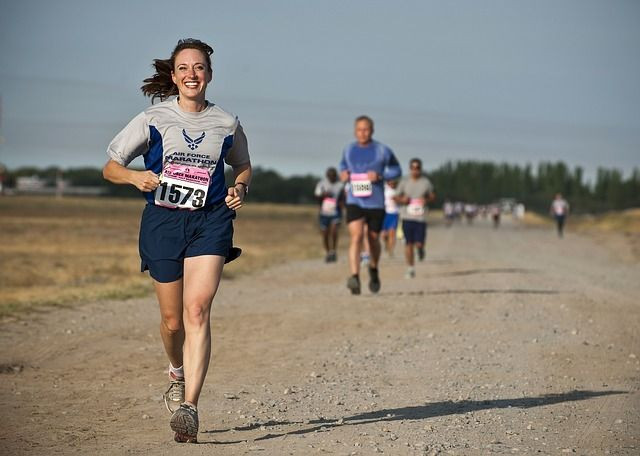Workout Motivation Trick: Competition Is More Effective Than Encouragement

Do you ever feel inspired to get active while scrolling through your Instagram feed looking at pictures of your friends working out? Researchers at the University of Pennsylvania wanted to understand how social media affects individual fitness activity. In their new study, they explain how competition may be better than encouragement and friendly support at motivating people to exercise.
“When social media is used the wrong way, adding social support to an online health program can backfire and make people less likely to choose healthy behaviors. However, when done right, we found that social media can increase people's fitness dramatically,” Damon Centola, senior author of the paper, said in a press release.
To reach these conclusions, researchers examined nearly 800 Penn graduate and professional students who’d signed up for an 11-week exercise program called "PennShape." Participants weren’t aware that the researchers had split them into four groups — individual competition, team support, team competition, and a control group — to test how different kinds of social networks affected their exercise.
In the competitive groups, attendance rates at exercise classes were 90 percent higher than in the control group. The research team found that both team and individual competition equally drove the students to work out.
"Supportive groups can backfire because they draw attention to members who are less active, which can create a downward spiral of participation," Centola explained in the news release. "Competitive groups frame relationships in terms of goal-setting by the most active members. These relationships help to motivate exercise because they give people higher expectations for their own levels of performance."
Source: Zhang J, Brackbill D, Yang S, Becker J, Herbert N, Centola D. Support or competition? How online social networks increase physical activity: A randomized controlled trial. Preventative Medicine Reports. 2016.
Read more:
What's The Best Time To Exercise? Muscle Cells May Work Best At A Certain Time Of Day
Winners Who Outperform Others Are More Likely To Cheat In Future Competitions



























